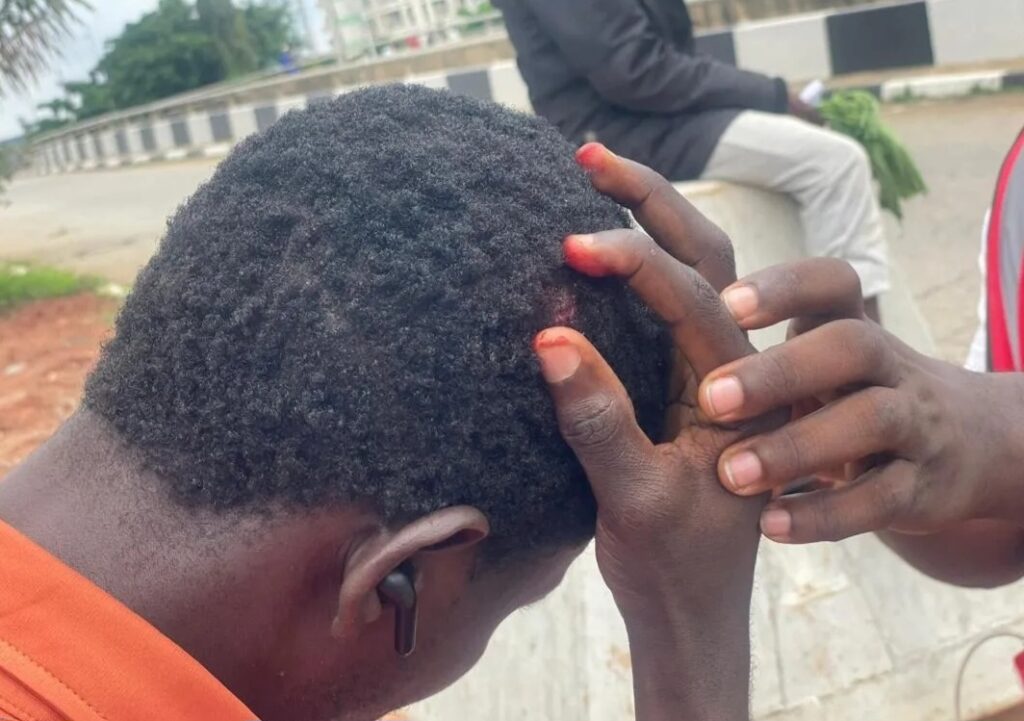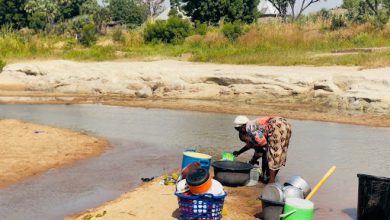Round-Up: Nigerian Journalists Faced Increased Intimidation, Attacks in 2024
Nigerian journalists faced significant intimidation and attacks in 2024, particularly while covering protests and sensitive issues. The attacks have been widely condemned, and there have been calls for the government to take action to protect journalists and ensure their safety while reporting.

The year 2024 has been marked by a surge in intimidation and violence against Nigerian journalists, who have faced significant risks while covering protests and sensitive events. During the August #EndBadGovernance alone, a staggering 56 journalists were assaulted or harassed by security forces, highlighting the dangers faced by media professionals in the country.
For instance, Yakubu Mohammed, a reporter with Premium Times newspaper, was struck by a police officer while reporting on cost-of-living protests in Abuja. “I was hit with a gun butt,” Mohammed said. “Two other officers beat me, seized my phone, and threw me in a police van despite wearing a ‘press vest’ and showing them my identification card.”

Timeline of events
On Feb. 5, two journalists from Informant247, Salihu Ayatullahi and Adisa-Jaji Azeez, were arrested and charged with conspiracy, cyberstalking, and defamation. They were charged based on a complaint by the rector of Kwara State Polytechnic that journalists made false claims about the institution’s financial status.
On May 22, Madu Onuorah, publisher and editor-in-chief of Globalupfront Newspaper, was arrested in Abuja following a petition written to the Enugu police commissioner “over an alleged defamatory publication he made against a US-based reverend sister”.
In the same month, Daniel Ojukwu, a senior reporter with the Foundation of Investigative Journalism (FIJ), was arrested and detained for 10 days in police custody with suspects who confessed to the crime of murder.
Ojukwu was arrested over a report on alleged corrupt practices by Orelope Adefulire, a former Lagos State deputy governor, while she was senior special assistant on sustainable development goals (SSAP-SDGs) under the Muhammadu Buhari administration.
Similarly, Precious Eze, publisher of the online newspaper News Platform, was arrested by police on May 27 following a complaint by a prominent businessman and politician. He was detained for more than a week, during which his colleagues struggled to secure his release. Despite a court ruling on May 30 dismissing the charges against him, he was re-arraigned on May 31.
On May 28, 2024, the Nigerian Police Force National Cybercrime Centre (NPF-NCC) questioned for over nine hours a reporter with the nonprofit ICIR news agency, Nurudeen Akewushola, and ICIR Executive Director Dayo Aiyetan. The duo were summoned for questioning in connection with investigations into “cyberstalking and defamation of character” allegations.
More high-handedness by police
On June 11, Gabriel Idibia, a Kaduna State Correspondent of the Daily Times newspapers, was arrested and tortured by the Nigerian police for photographing their illegal activities. In another matter, on Aug. 31, 2024, Muktar Dahiru, a Kano-based broadcast journalist with Pyramid FM, was arrested for sharing posts critical of the state government on his Facebook page.
During the #EndHunger nationwide protest that took place in Nigeria between August 1 and August 10, the police used tear gas and shot live bullets to disperse thousands of youths, including journalists in various parts of the country.
Even though most of the press attacks have followed a similar pattern under Inspector General of Police Kayode Egbetokun’s watch, he has been loudly silent about it and no officers involved have been sanctioned.

While the spokesperson of the Nigeria Police Force, Muyiwa Adejobi, did not respond to several calls and text messages seeking his comments over the repeated attacks, Busola Ajibola, Deputy Director of Journalism Programme at the Centre for Journalism Innovation and Development (CJID), expressed worry about the trend in harassment against journalists.
“President Tinubu professes the values of democracy and recounts that he has been a victim of harassment under the military government. We would assume that he understands why it is important to protect civil space and independent media. It is therefore important that he takes the lead to direct all government agencies, especially the security agencies, to refrain from harassing and brutalising journalists and the media at large.”
Information minister pledges protection of press freedom by gov’t
Speaking at the 2024 International Press Institute (IPI) Nigeria Conference in Abuja on Wednesday, Dec. 11, Minister of Information and National Orientation, Mohammed Idris, pledged that the rights of the press will be protected by the Nigerian government. He added that freedom of the press “is indispensable to our democracy.”
“The media faces significant challenges. Since President Bola Ahmed Tinubu assumed office in May 2023 and since my appointment as Minister of Information and National Orientation in August, we have reiterated our commitment to ensuring and expanding press freedom. Each time press freedom has appeared threatened, I have personally intervened to ensure due process prevails and fundamental rights are respected.
“President Tinubu, as a former pro-democracy activist, values press freedom. His reforms, including strengthening the judiciary, further prove his commitment. However, we must realise that freedom comes with responsibility. Media practitioners must balance their rights with respect for others and avoid abusing the power they wield as shapers of public opinion,” he said.
In 2024, Nigerian journalists have experienced increased intimidation and violence, particularly from security forces during protests, such as the August #EndBadGovernance event.
Incidents include Yakubu Mohammed of Premium Times being assaulted by police while reporting in Abuja, and several arrests of journalists like Salihu Ayatullahi and Gabriel Idibia for alleged defamation and corrupt practices reporting. Despite the recurring nature of these attacks under Inspector General of Police Kayode Egbetokun’s tenure, no officers have been sanctioned for their actions.
Concerns have been raised by figures like Busola Ajibola regarding this troubling trend against press freedom. However, the Nigerian government, represented by Information Minister Mohammed Idris, has pledged to protect press rights, emphasizing the indispensable role of media in democracy. He highlighted President Tinubu's commitment to press freedom, linking it to his pro-democracy activism, while also stressing the responsibility that comes with this freedom.
Support Our Journalism
There are millions of ordinary people affected by conflict in Africa whose stories are missing in the mainstream media. HumAngle is determined to tell those challenging and under-reported stories, hoping that the people impacted by these conflicts will find the safety and security they deserve.
To ensure that we continue to provide public service coverage, we have a small favour to ask you. We want you to be part of our journalistic endeavour by contributing a token to us.
Your donation will further promote a robust, free, and independent media.
Donate HereStay Closer To The Stories That Matter




